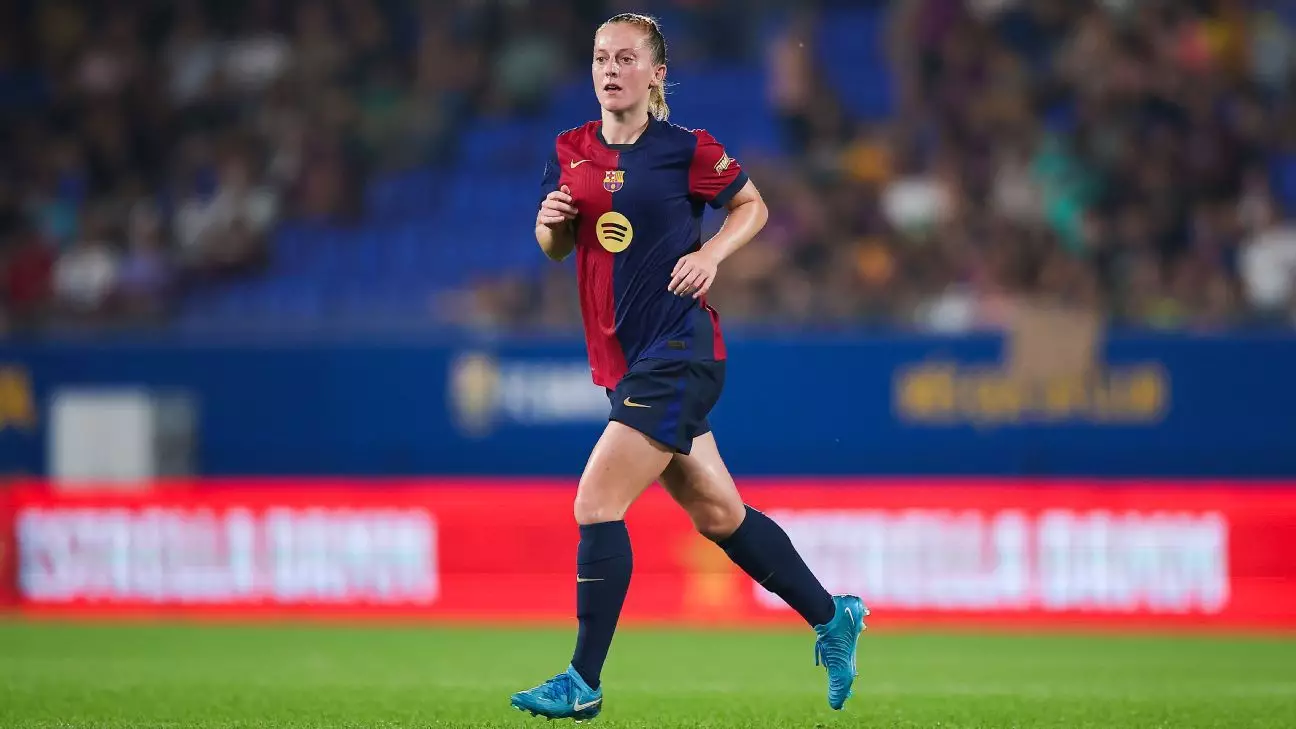The landscape of women’s football has been undergoing remarkable transformations, marked not only by record-breaking transfers but also by fierce competition among clubs. Recently, the saga surrounding England international Keira Walsh has captured the attention of fans and analysts alike. Barcelona’s decision to reject an ambitious offer for Walsh from Arsenal, purportedly designed to shatter the existing transfer record in women’s football, unveils various layers of ambition, strategy, and player dynamics within elite women’s football.
The context of the transfer offer is pivotal. As reported, Arsenal expressed a concrete interest in Walsh, with the proposed bid estimated at €1.1 million (approximately $1.2 million). This figure stands in stark contrast to the previous record of €800,000, which was set earlier this year when Racheal Kundananji transferred to Bay FC from Madrid CFF. Such a substantial offer reflects not just the value placed on Walsh, but also the undercurrents of competition as clubs seek to enhance their squads substantially. It’s essential to recognize that substantial financial stakes are increasingly influencing player mobility in women’s football.
With Walsh having initially joined Barcelona for a then-record fee of €400,000 from Manchester City in 2022, her potential departure represents a critical moment for the Catalan giants. The ramifications of Walsh’s exit could be profound, particularly due to her contributions to the team’s past successes, including their double European championship—an achievement that has not only amplified the club’s prestige but also elevated the status of women’s football.
Barcelona’s emphatic response to the transfer interest has been marked by their insistence on Walsh’s €3 million release clause. This firm stance indicates both a strategic safeguarding of their talent and an underlying confidence in their position within the European game. Despite Walsh being out of contract at the season’s end, suggesting a potential exit as a free agent, Barcelona seems resolute in their desire to retain pivotal players. Their commitment arises from the belief that Walsh is crucial for maintaining the club’s competitive edge.
The notion that Walsh could potentially return to England adds an intriguing element to this narrative. While sources indicate her openness to this possibility, the club’s management remains optimistic about convincing the player to stay. The critical assertion from coach Pere Romeu—that “there is no Keira Walsh issue”—and his affirmation of her integral role further accentuate Barcelona’s strategic foresight in player retention. This indicates not only respect for Walsh’s abilities but a recognition of her alignment with the club’s style of play, which further complicates future negotiations.
Compounded with Walsh’s situation is the transfer of María Pérez, who has moved to London City Lionesses. Pérez’s transition underlines a nuanced element of women’s football: the interplay between development opportunities and promotion ambitions. While Barcelona seeks to plug gaps and maintain their star-studded lineup, players like Pérez—international champions, yet still at early stages of their careers—represent the clubs’ dual pursuit of nurturing talent while pursuing competitive aspirations.
The Lionesses’ ambition parallels that of many clubs, seeking to ascend to the Women’s Super League (WSL) after signing several notable internationals. As the landscape of women’s football expands, such moves reveal ambitions not just within top-tier leagues but also among teams in lower divisions seeking success.
The refusal to release Keira Walsh, combined with the dynamics surrounding other player movements, paints a vivid picture of the evolving women’s game. Barcelona’s rejection of a sizeable transfer bid reflects a broader commitment not just to success on the field, but also to the potential implications of losing a core player. With clubs like Arsenal and Chelsea actively enhancing their squads, the stakes in women’s football are rising. As the transfer window remains a focal point of intrigue, observing how Barcelona navigates this situation while attempting to extend Walsh’s contract will be essential to understanding the ongoing evolution of the sport. The strategic decisions made today may set profound precedents for the future of women’s football, where talent retention, financial clout, and competitive integrity must coexist.


Leave a Reply